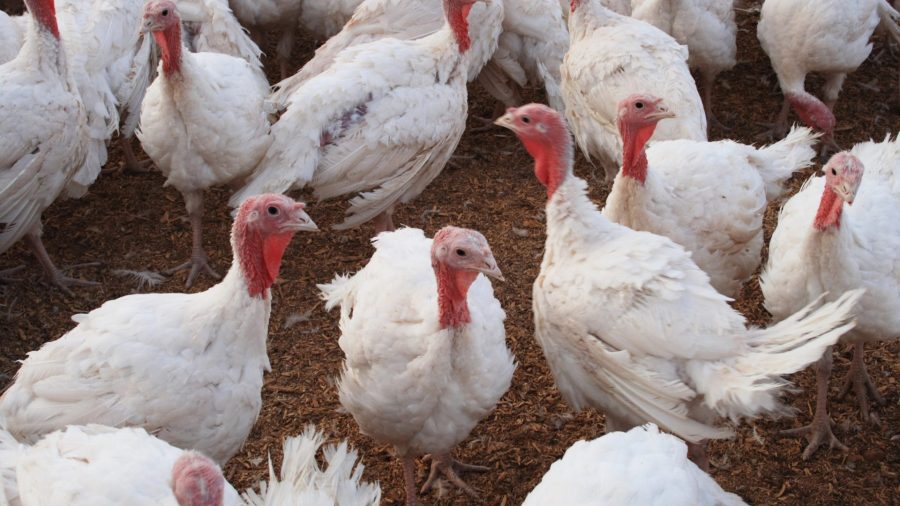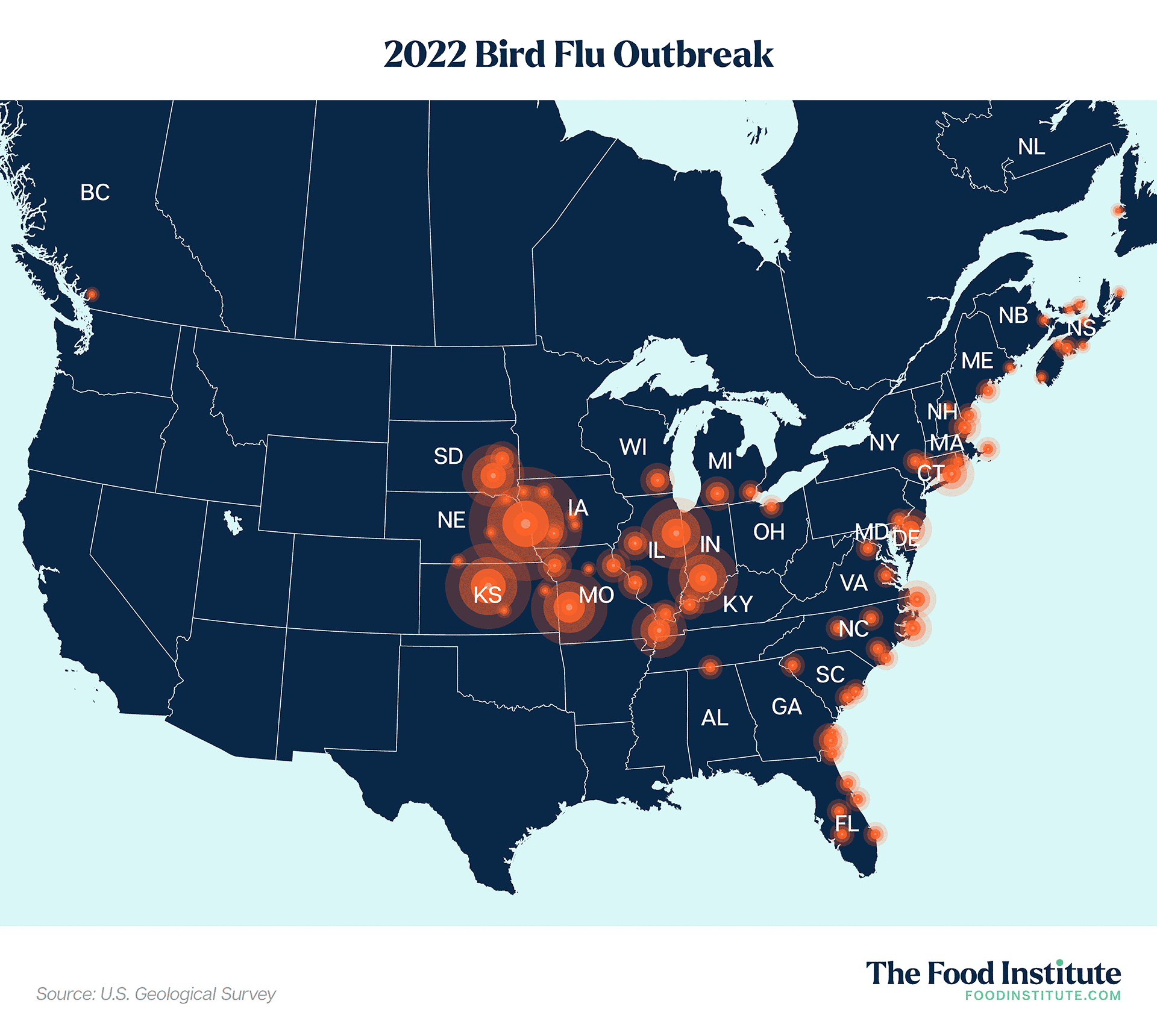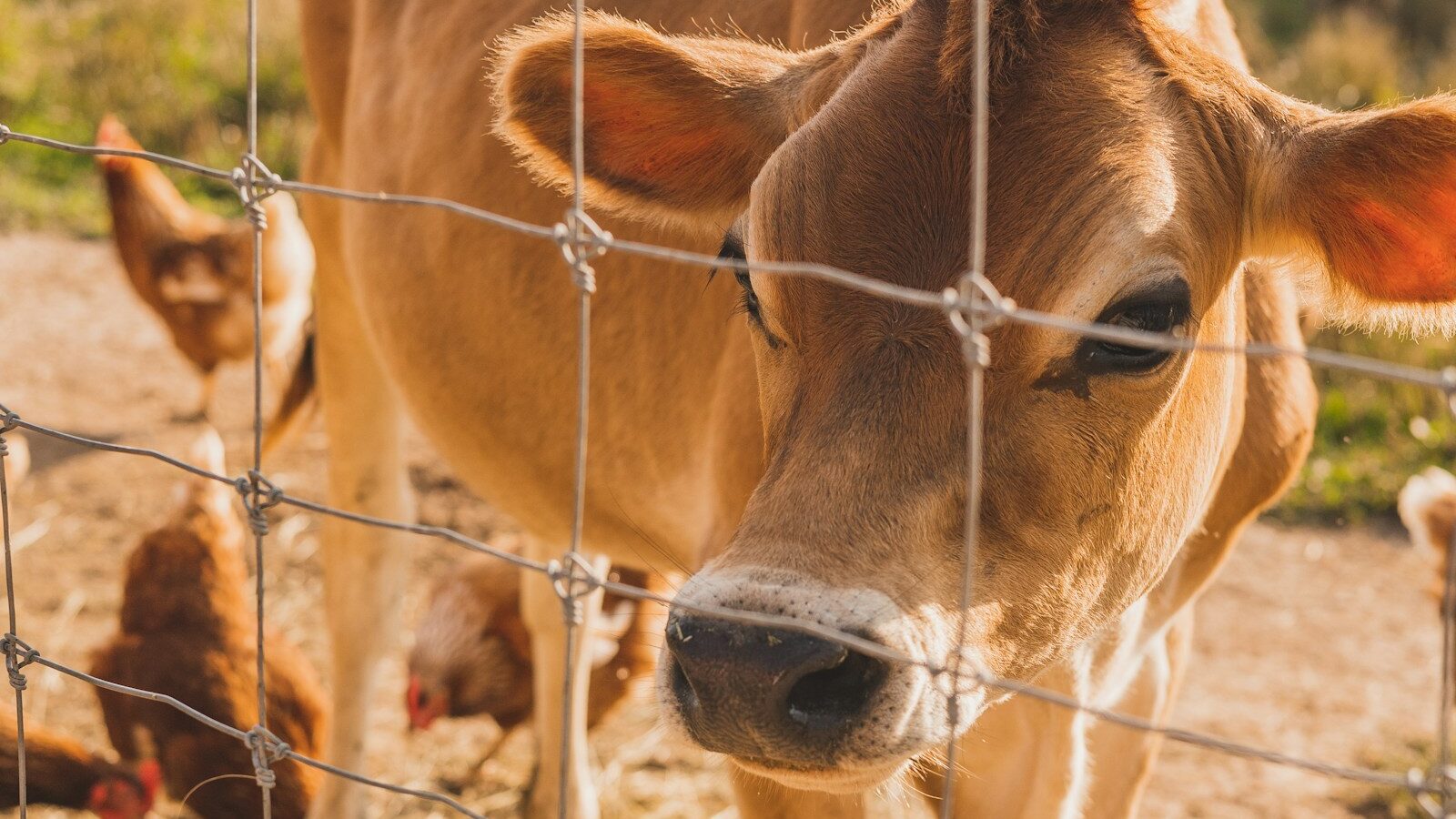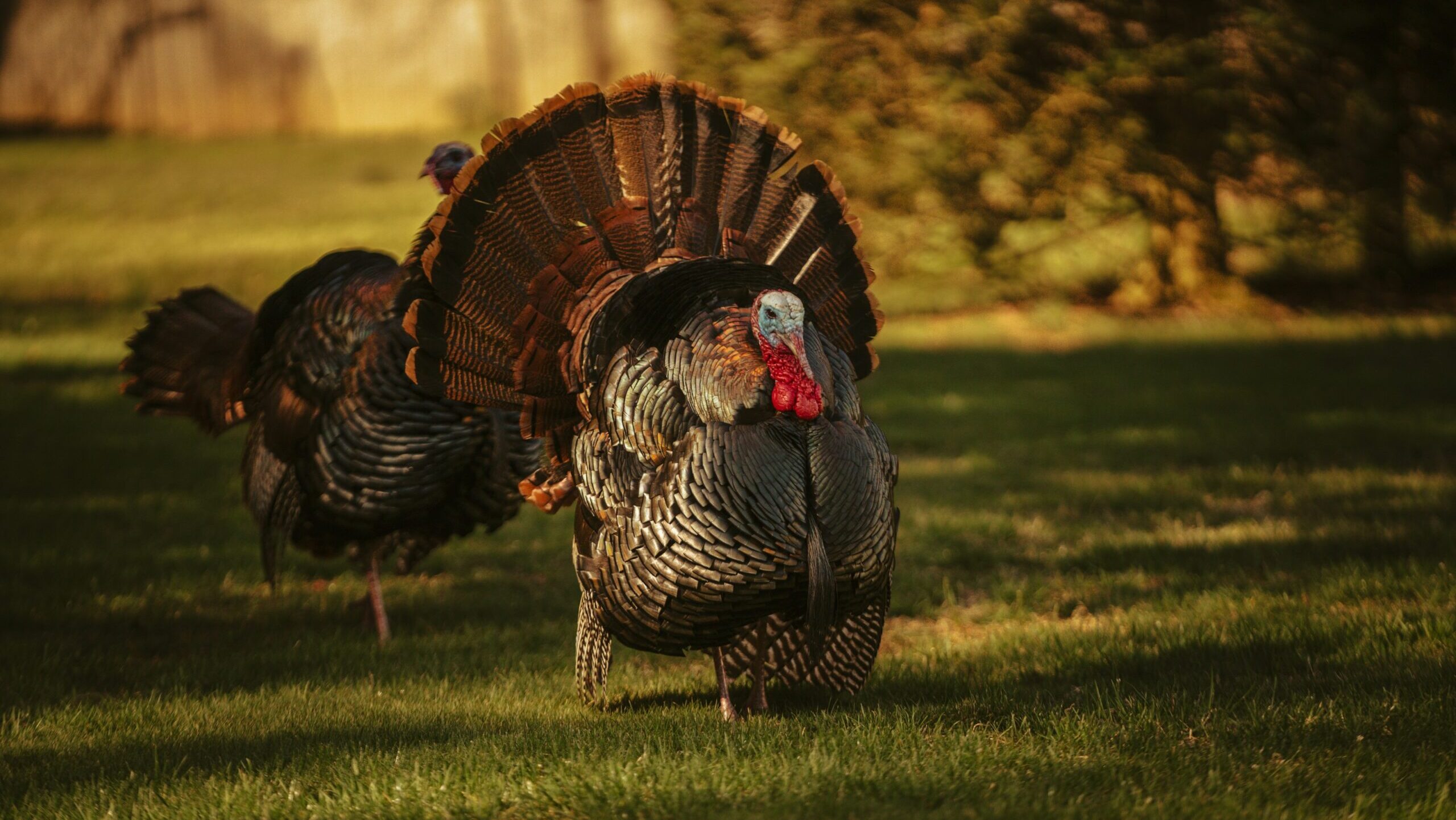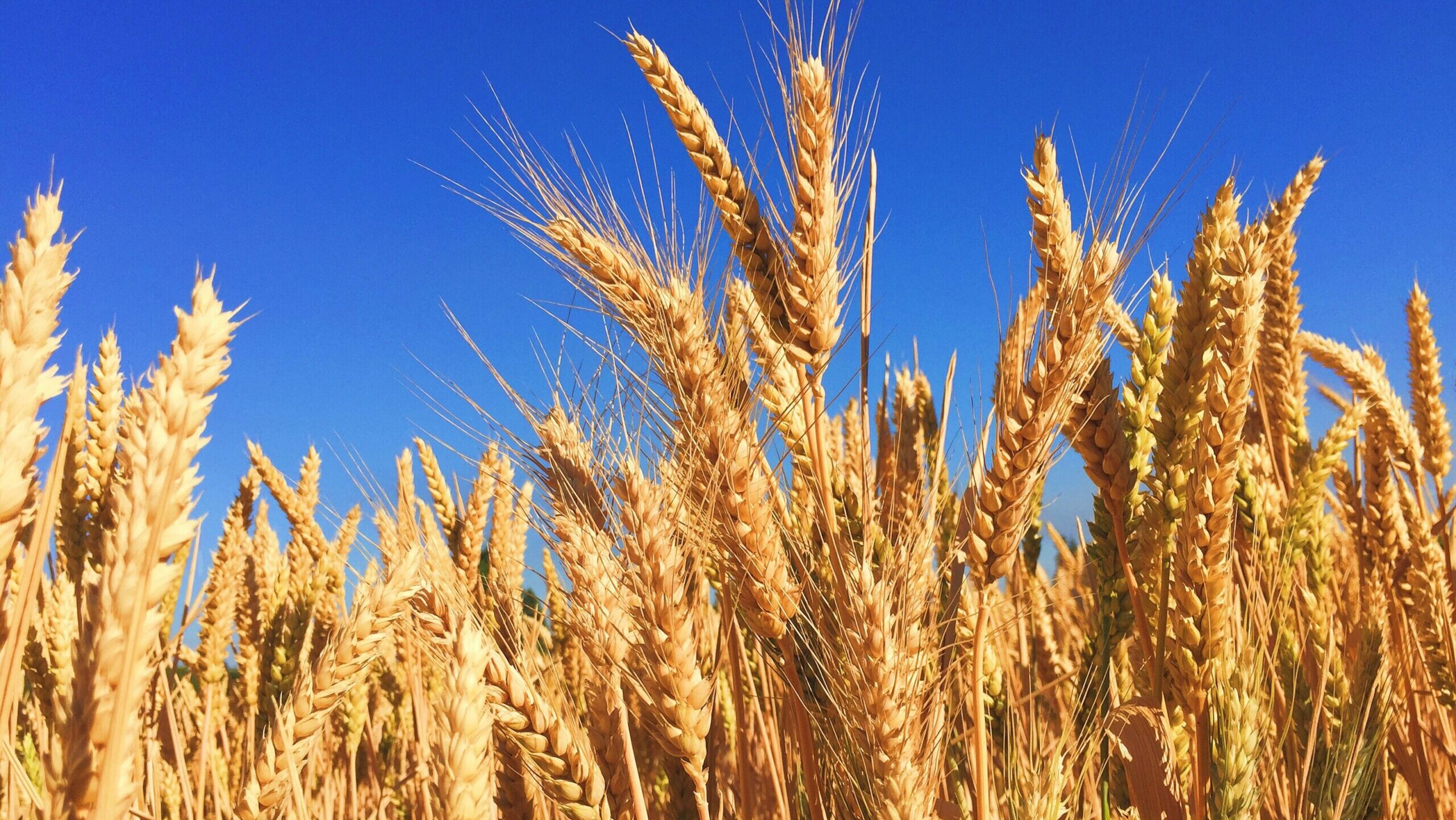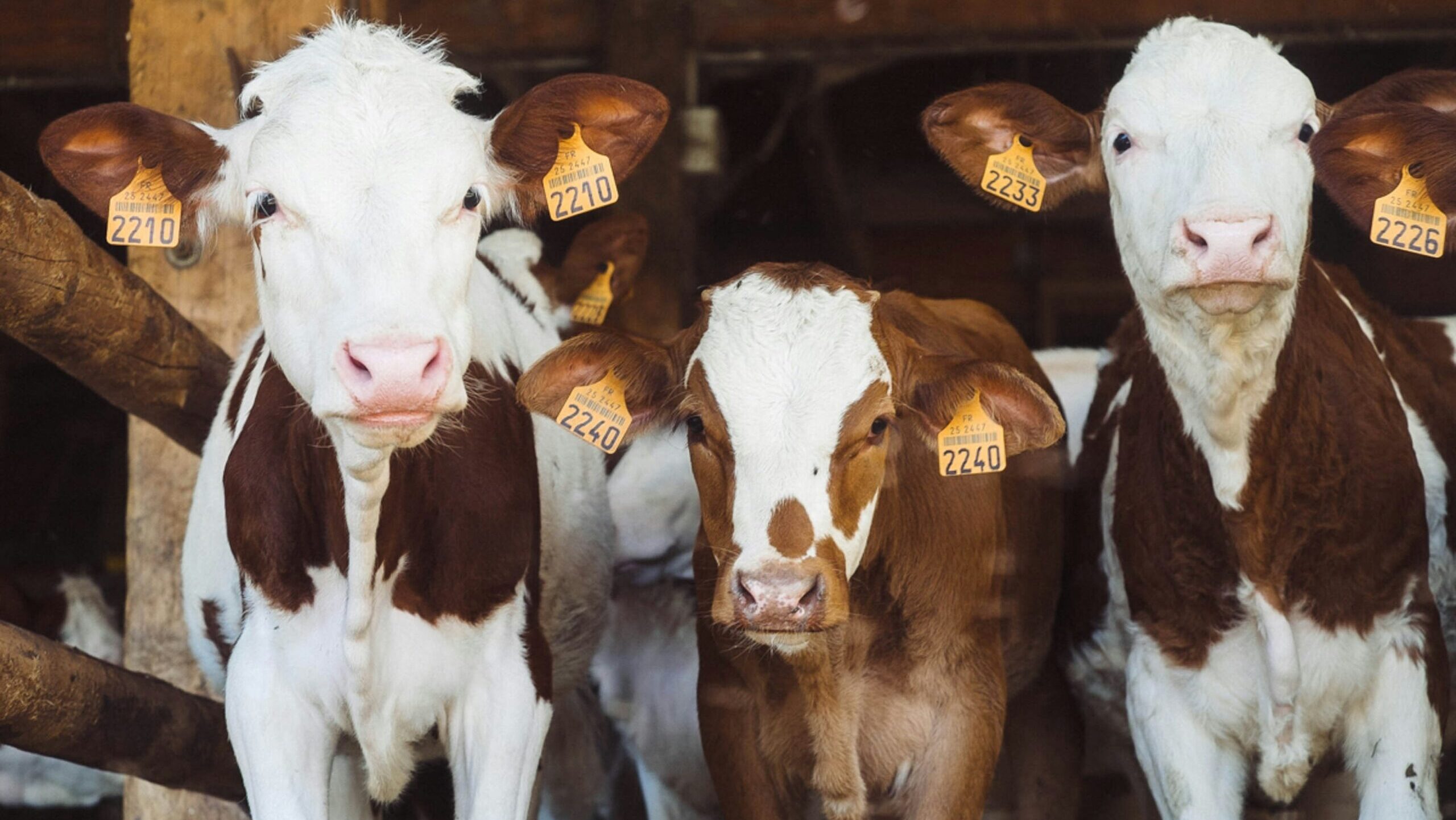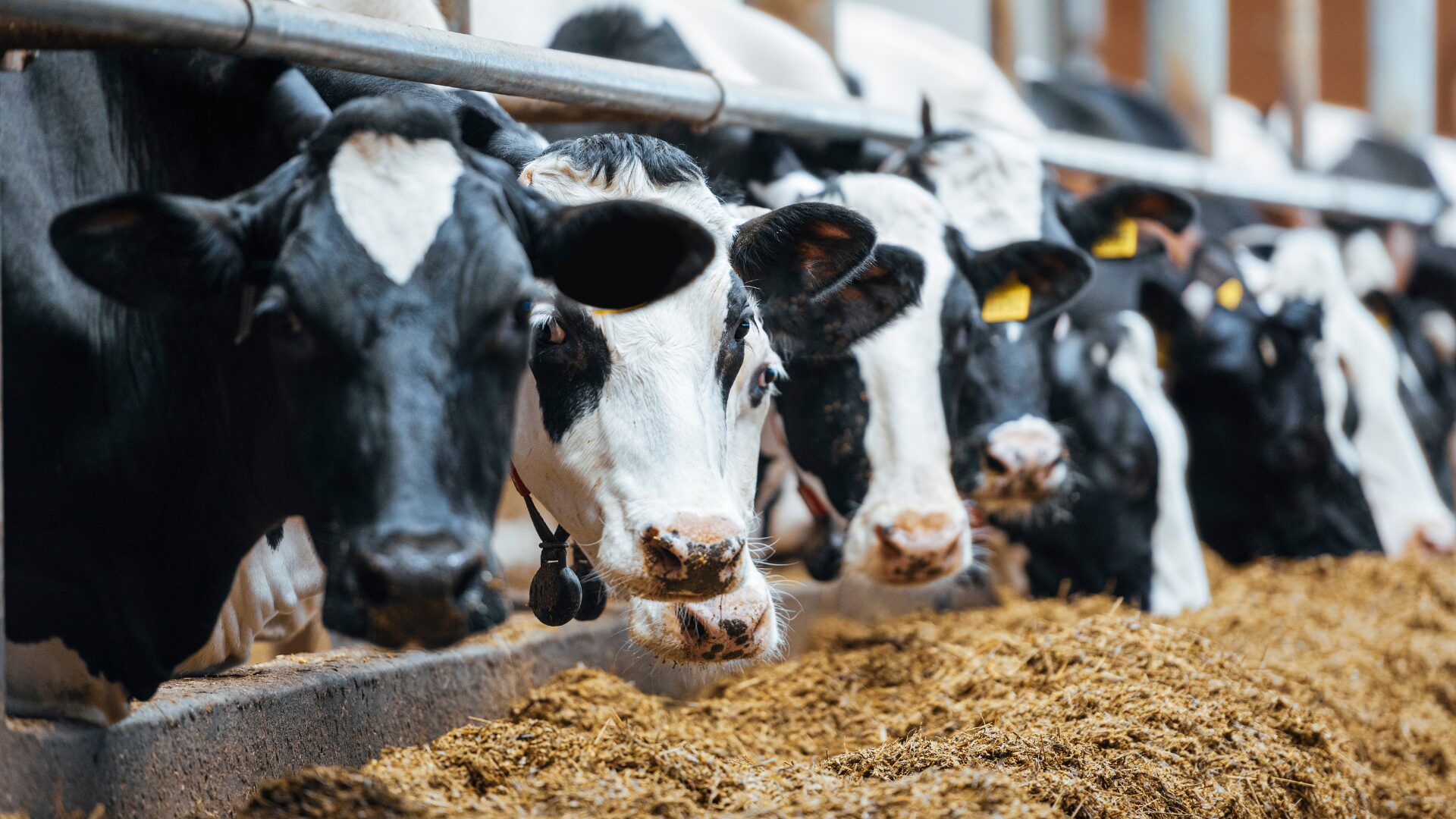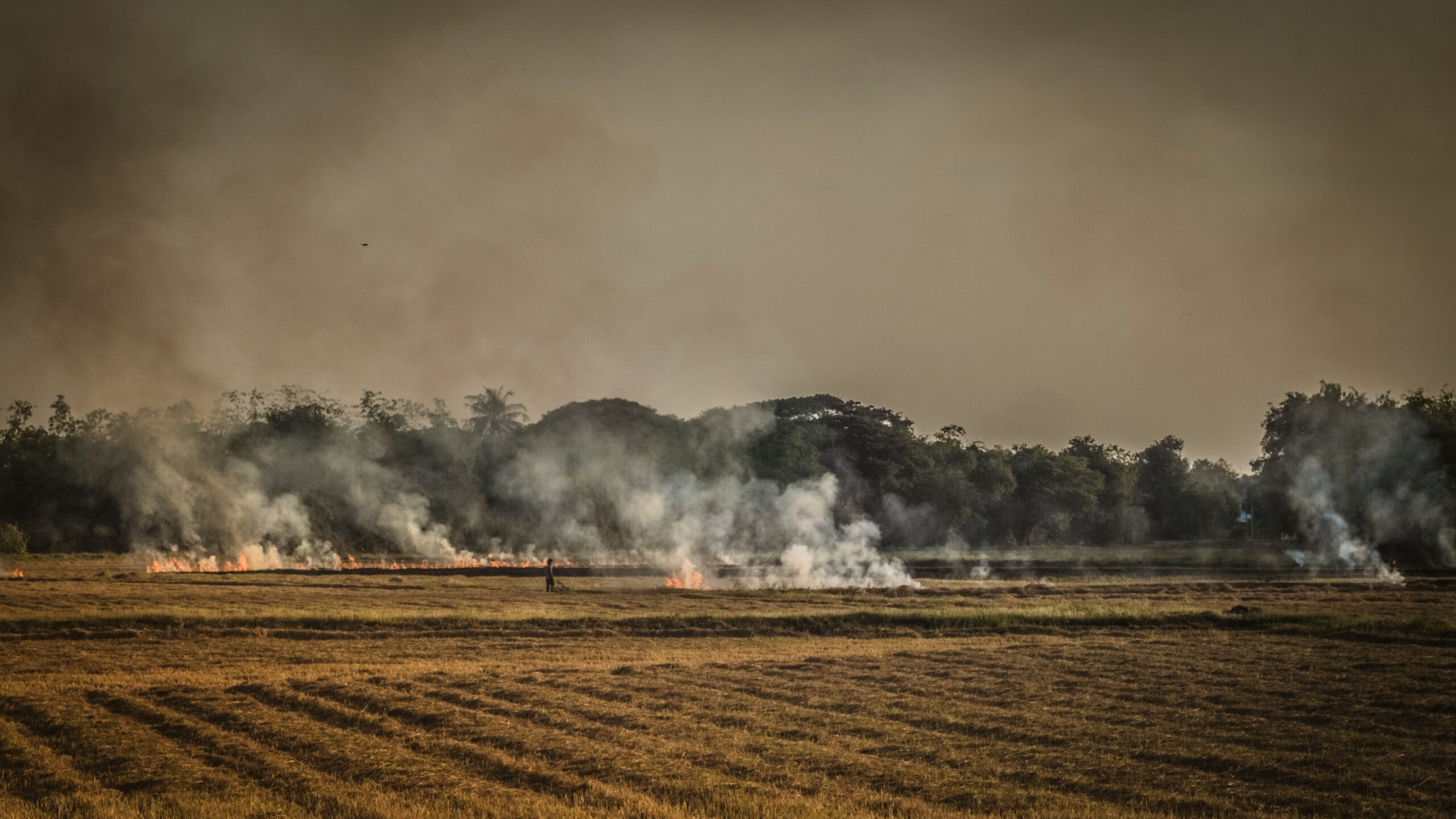In the last week, the USDA has added six states to the list where highly pathogenic avian influenza (HPAI) has been detected.
The Animal and Plant Health Inspection Service confirmed the presence of bird flu in a commercial pheasant flock in Texas. Earlier, APHIS confirmed bird flu infections in Massachusetts, Wyoming, North Carolina, Ohio and North Dakota. So far in 2022, HPAI has also been confirmed in commercial poultry flocks in the following states: Kentucky, Delaware, Maryland, Missouri, Iowa, Wisconsin, South Dakota, Indiana, and Minnesota, according to WATTPoultry.com.
APHIS said some 7 million chickens and turkeys were to be slaughtered as a result of the latest outbreaks, Meat + Poultry reported (April 4). The largest outbreak was reported in Osceola, Iowa, affecting more than 5 million commercial layer chickens.
Jeff Bender, a professor at the University of Minnesota School of Public Health, said the outbreak could have a significant impact on poultry and egg prices for the next six months if farmers are forced to perform a significant cull. So far, more than 17 million birds have been destroyed.
An analysis by CoBank indicates egg supplies are going to be tight at a time of year when they normally are plentiful. Egg prices rose 14% year over year in 2020, partly because of COVID-induced production issues. Currently, the number of egg-laying chickens is down nearly 20 million from April 2019 levels.
Consumers may be looking at more than $3 a dozen in coming weeks. Egg prices currently are up 52%, Forbes reported (April 4), and the price of chicken parts also has risen significantly, the USDA National Retail Report-Chicken shows.
In other agriculture news:
Regenerative grazing: Several groups are trying to convince dairy farmers to try out regenerative grazing to fight pollution and ease the impact on the climate. Agriculture has been cited as the greatest contributor to damage to Chesapeake Bay, for example.
Groups like the Dairy Grazing Project argue regenerative grazing can eliminate the need for feed crops and help spread manure more naturally. The technique involves rotating the cows through several pastures to stimulate growth, drawing carbon deeper into the soil. Case studies indicate farms that switched to regenerative grazing reduced their greenhouse gas emissions by 42%, Civil Eats reported.
Emotional pigs: Pigs may not be able to fly, but an algorithm developed by European researchers could allow humans to decode porcine emotions, a study published in Scientific Reports found (March 7). Pigs produce more sounds than other animals. The researchers collected 7,400 distinct calls from 411 animals and hope the algorithm will lead to better animal management.
Wildfires: Experts warn the 2022 fire season in Northern California could outstrip last year when 2.5 million acres burned, the Sacramento Bee reported. The state is poised to enter its third year of drought, with more than 40% of the state considered extremely parched.


